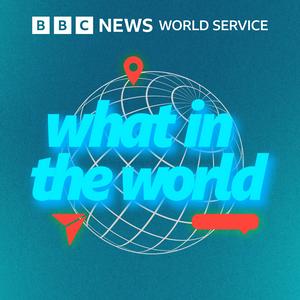On Sunday Mexican security forces killed El Mencho, one of the country’s most wanted drug lords and the leader of the Jalisco New Generation Cartel (CJNG). In response, members of the feared cartel have unleashed a wave of violence across 20 Mexican states.
Jack Burgess, a BBC reporter who covers international affairs, explains what’s been happening. And Laura Garcia, a BBC reporter from Mexico, explains how cartels recruit young people and how everyday Mexicans have had to adapt to the threat of cartel violence.
The uptick in violence comes as Mexico prepares to host the World Cup, alongside the U.S. and Canada, between 11 June and 19 July. BBC Sport reporter Daniel Austin tells us how fans have been reacting and what it might mean for the football tournament.
Instagram: @bbcwhatintheworld
Email:
[email protected]WhatsApp: +44 330 12 33 22 6
Presenter: Iqra Farooq
Producers: William Lee Adams and Benita Barden
Editor: Verity Wilde


